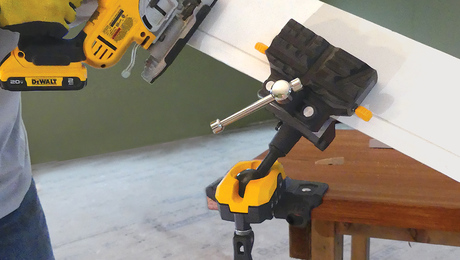I am looking to upgrade the electrical service in a cottage that was built in the 50’s. Currrent wiring is comprised of 2 wire, ungrounded rubberized fabric covered NM, commonly used in that era. Since the cottage is knotty pine, solid wall construction, the wiring is run through the ceiling and then down the walls to the various receptacles and light switches, exposed and just stapled to the walls.
I would like to upgrade the system to a 100 amp grounded system, but believe it or not, would like to preserve the look of the exposed, fabric covered NM. Are there materials available that will meet code, but preserve this look? Are there other wiring options that would preserve this rustic and dated look? Thank you.
LLAKER1



















Replies
"Are there materials available that will meet code, but preserve this look?"
I'm no electrician, but I would be very surprised.
Leave the old wiring in place but cut and tape it off just inside the box and run the modern wiring out of sight through the walls. In the attic remove most of the old wiring and label what comes up from below as abandoned.
Rich Beckman
Another day, another tool.
no there isnt, and if you leave it there, the inspector will have a bird, exposed wiring must be metal sheathed, either conduit or armoured cable
caulking is not a piece of trim
The best way to go would be to replace it with EMT. Go with compression fittings instead of those crappy set screw ones for a neater and more solid look. This will look plenty rustic and dated, and be safe and legal. For an even more dated look, slop lots of paint over the conduit.
I have a piece of that old Loomex about 2 - 3 ft long that I saved as a historical artifact. You might do likewise, but recycle the rest for scrap copper. ;-)
-- J.S.
John,
Your suggestion makes the most sense for my situation, since the walls are solid pine with no hollow cavities. I like the idea of adding a little paint to give it the rustic look and I probably will have enough old copper when the project is done to make a trip to the salvage yard worth while. Thanks.
LLAKER